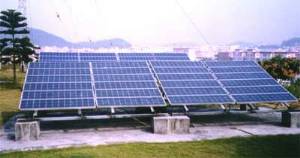|
Firm's 11th Canadian Call Center
PETERBOROUGH, Ontario, Canada – ICT Group's expansion-planning team has once more called up Canada. This time out, the Newtown, Pa.-based company has tapped Peterborough, Ontario, for a new call center that will employ as many as 500 workers.
The Peterborough operation will be the 11th Canadian call center for ICT, which provides outsourced customer relationship management services through its operations in Australia, Canada, Europe and the United States. The company's newest Canadian addition will specialize in supplying sales and service support for financial services firms. Client companies, ICT said, will be based in both Canada and the United States.
Peterborough's work force was a major draw for ICT, company officials explained.
"Peterborough offers an exceptional labor pool and is one of the most attractive communities in the province," said Paul Pierce, ICT Canada vice president and general manager, who was directly involved in selecting the city.
Located an hour's drive northeast of Toronto, Peterborough has a population of some 125,000 residents. ICT officials, however, said that the new call center, which will be built in downtown Peterborough along the Otonabee River, will lie within commuting distance of 125,000 workers.
ICT, company officials added, also liked Peterborough's proximity to the company's central Canadian sales office, which is located in Ajax, Ontario. The Peterborough site will be less than an hour's drive from the Ajax office.
|
Downtown Economy, Local Official Says
"The employment created by ICT Group will form a critical mass that will greatly benefit retailers, landlords and other services in the core, and we are delighted to officially welcome them to our corporate community today," Cudahy said.
The GPA EDC has strengthened the area's call-center cause by appealing to the local development community to design facilities that can be quickly constructed. That initiative counters the obstacles that call center site selectors have sometimes cited in Canada: a dearth of appropriate existing space, combined with slowness in bringing suitable new space online. In contrast, AmeriCredit last year was able to open its Peterborough call center, developed by locally based Signum, a mere six months after groundbreaking.
Peterborough's proactive approach dovetails with efforts to bolster the province's overall business climate, said Ontario Minister of Enterprise Opportunity and Innovation Jim Flaherty. "The government continues to work hard to create the business conditions that will bring more jobs and businesses to all regions of the province," Flaherty said at the announcement of ICT's new call center. "We must continue to cut taxes, reduce red tape and create a culture of innovation, because this is the proven path to economic prosperity, jobs and a higher standard of living for all Ontarians."
Both Outsourcers, Canada
Outsourced call center providers like ICT have gotten a business boost from the current economic downturn, which has prompted even more careful allocation of working capital. Taking the outsourcing route preserves resources that would otherwise be spent in setting up separate, independent operations. In addition, the downturn has left excess capacity in some outsourcers' centers, creating downward pricing pressures.
Canada's call center fortunes have gotten a recent boost, too. The source, however, has been even darker - Sept. 11th.
Prior to last year's terrorist attacks, nations like India and the Philippines had become increasingly popular offshore options for call centers. Substantially lower costs triggered that trend. Operating a 150-employee call center in India, for example, would cost some US$2.2 million a year, Datamonitor estimated in a report released late last year. In contrast, the same center in the United States would cost $5.6 million a year to operate, according to Datamonitor's estimate.
Post-9/11 employee safety concerns, however, have made some U.S. companies wary of offshore locations. As a result, the site selection palette for a number of call center expansions has largely narrowed to North America.
The exchange rate is one obvious cost factor. As of July 16th, one U.S dollar equaled $1.54 Canadian dollars.
Canada's health-care system also lowers call center costs. Provincial health-care plans - which are funded by employee premiums and, indirectly, by corporate taxes - absorb many benefits that employers would bear in U.S. operations.
Lower turnover further enhances Canada's call-center appeal. Canadian centers' reported turnover rates generally run between 15 percent to 20 percent annually. In contrast, a Purdue University study released last year reported that annual U.S. call-center turnover rates range from a high of 35.6 percent in the Southeast region to a low of 21.6 percent in the Southwest. And rampant turnover of 75 percent to 100 percent is not unheard of in individual U.S. call centers. Canada's cost advantages were part of picking Peterborough for ICT's new call center, company officials explained.
"Expanding our Canadian operations to economically advantageous locations like Ontario is consistent with our international growth strategy," said Chairman and Chief Executive Officer John Brennan, "enabling us to better serve our clients with affordable, high-quality customer relationship management solutions."
OAO Technology Solutions (OAOT) is another outsourcing provider that's warmed to Canada's cost advantages, picking the country for what it calls "near-shore" operations. The Greenbelt, Md.-based firm opened a 35-employee center in Moncton, New Brunswick, in 1999 that now employs more than 400. Another OAOT in Toronto center that started small in 1998 has grown to 300 employees. The company's "near-shore" Canadian operations have provided considerable cost benefits, said John Hall, OAOT vice president and region principal.
"When you add in the consideration of the additional management overhead required to offshore something to a place like India - the cultural, language and time differences - there are several studies that show that by the time you add those costs on top, it comes within 3 to 5 percent of what we've been able to do in New Brunswick," Hall explained.
"Add on the ease if someone had to be onsite in an emergency situation," he continued, "and most people are starting to say that there really is an advantage to what we call 'near-shore' as opposed to offshore in places like India, the Philippines or Eastern Europe."
Editor's note: Site Selection will profile more of Canada's business attractions in the September issue's article on the Atlantic provinces, as well as in the November issue's features on Ontario and Quebec.
|
SHENZHEN, China – Relocating the manufacturing base from China to Uganda isn't exactly an everyday business-location strategy.
Such is the scenario, though, for Shenzhen Topway Solar. The Shenzhen, China-based manufacturer of solar equipment has announced that it's relocating its Chinese manufacturing operations to an as-yet-undetermined Ugandan location. And the company regards the manufacturing move as only a first step in possibly relocating the entire business to Africa.
Substantially lower production and transportation costs are spurring the manufacturing relocation, according to company officials. Shenzhen Topway Solar currently sells its solar equipment in 15 African countries. Collectively, those nations account for more than 70 per cent of the company's total sales.
Shenzhen Topway Solar's announced move ranks as the first full-scale manufacturing relocation in Uganda's history, according to national officials.
The relocation will also appreciably lower solar power costs in Africa, company officials asserted.
"Africa is our biggest market, and if we manufacture from there, our products would be cheaper and more competitive," Henry Hsia, a Shenzhen Topway Solar African spokesman, told The East African.
|
Frontrunners for HQ Relocation
Negotiations with the Ugandan government will likely play a significant role in the specific site that's selected for the manufacturing relocation. Uganda's tax treatment of the manufacturing operation is part of Shenzhen Topway Solar's negotiations with the government. The 10-year-old solar power manufacturer's relocation project comes as Uganda is facing a projected 305-megawatt electrical-energy deficit by 2004.
Shenzhen Topway Solar could see a further boost in its African business as a result of the rural electrification initiatives that a number of sub-Saharan nations have adopted. Those programs augur well for Shenzhen Topway Solar's product line, which includes everything from solar panels to solar home power systems and solar home lighting.
"We hope that within two years, if the market is successful, we can move here." Hsia said. Two cities - Kampala and Nairobi, Kenya - have already emerged as prime contenders for the contemplated headquarters relocation, Hsia said.
|
ANKENY, Iowa – Market proximity was the linchpin in Deere & Co.'s decision to add 100 workers at its plant in Ankeny, Iowa. The 100 new positions will be relocated from a number of as-yet-undisclosed existing Deere operations. The shift is part of the company's overall strategy to maximize use of its manufacturing facilities.
The Ankeny plant's new workers will produce self-propelled sprayers for agricultural applications. The upper Midwest makes up the major U.S. market for self-propelled sprayers, Deere officials said.
Moving the work to the western Iowa plant, they added, will significantly reduce the operating
 costs associated with the sprayers' shipping and supplies, officials said. The new positions - which won't be added until 2004, according to company officials - are the first new hires at the Iowa plant since 2000, when Deere added 80 production employees.
costs associated with the sprayers' shipping and supplies, officials said. The new positions - which won't be added until 2004, according to company officials - are the first new hires at the Iowa plant since 2000, when Deere added 80 production employees.
 PLEASE VISIT OUR SPONSOR • CLICK ABOVE
PLEASE VISIT OUR SPONSOR • CLICK ABOVE 
©2002 Conway Data, Inc. All rights reserved. Data is from many sources and is not warranted to be accurate or current.




